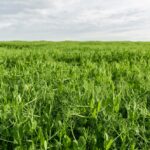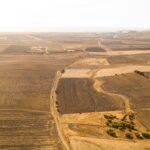Conservation agriculture (CA) is a sustainable farming practice that focuses on preserving soil health, enhancing biodiversity, and improving agricultural productivity. In South Africa, where agriculture is a vital part of the economy and rural livelihoods, promoting conservation agriculture can help combat soil degradation, improve food security, and adapt to climate change. Here are ten effective ways to promote conservation agriculture in South Africa:
1. Educate Farmers
Raising awareness about the benefits of conservation agriculture is crucial. Workshops, training sessions, and field demonstrations can inform farmers about practices such as no-till farming, crop rotation, and cover cropping, emphasizing their advantages for soil health and productivity.
2. Provide Financial Incentives
Government and private organizations can offer financial support, such as grants or low-interest loans, to farmers who adopt conservation agriculture practices. These incentives can help offset initial costs associated with transitioning to CA methods.
3. Promote Research and Innovation
Investing in research and development is essential for understanding the best practices for conservation agriculture in South Africa’s diverse environments. Encouraging collaboration between universities, research institutions, and farmers can lead to innovative solutions tailored to local conditions.
4. Facilitate Access to Resources
Ensuring that farmers have access to necessary resources, such as cover crop seeds, mulching materials, and appropriate machinery, is vital for the successful implementation of conservation agriculture. Establishing local cooperatives or partnerships can help distribute these resources efficiently.
5. Encourage Crop Diversity
Promoting the planting of diverse crops can improve soil health and resilience against pests and diseases. Encouraging farmers to adopt crop rotation and intercropping practices can enhance biodiversity and reduce dependency on chemical inputs.
6. Implement Sustainable Water Management
Water scarcity is a significant challenge in South Africa. Promoting conservation agriculture practices that enhance soil moisture retention, such as mulching and cover cropping, can improve water efficiency and reduce irrigation needs.
7. Support Policy Development
Advocating for supportive policies at the national and local levels can create an enabling environment for conservation agriculture. Policymakers should focus on integrating CA practices into agricultural policies and ensuring that funding is available for sustainable agriculture initiatives.
8. Build Farmer Networks
Encouraging farmers to form networks or cooperatives can facilitate knowledge sharing and resource pooling. These networks can serve as platforms for exchanging best practices, success stories, and challenges faced in adopting conservation agriculture.
9. Leverage Technology
Utilizing technology can enhance the efficiency of conservation agriculture practices. Mobile apps, online platforms, and precision agriculture tools can provide farmers with information on best practices, weather forecasts, and soil health monitoring.
10. Engage Communities and Stakeholders
Involving local communities, NGOs, and other stakeholders in promoting conservation agriculture is essential for creating a sense of ownership and commitment. Community-based initiatives can help foster collaboration, increase awareness, and build support for sustainable farming practices.
Promoting conservation agriculture in South Africa is essential for achieving sustainable food production and addressing environmental challenges. By implementing these ten strategies, stakeholders can work together to create a more resilient agricultural sector that benefits both farmers and the environment. Embracing conservation agriculture not only enhances productivity but also safeguards the country’s natural resources for future generations.
Join 'Farmers Mag' WhatsApp Channel
Get the latest Farming news and tips delivered straight to your WhatsApp
CLICK HERE TO JOIN






